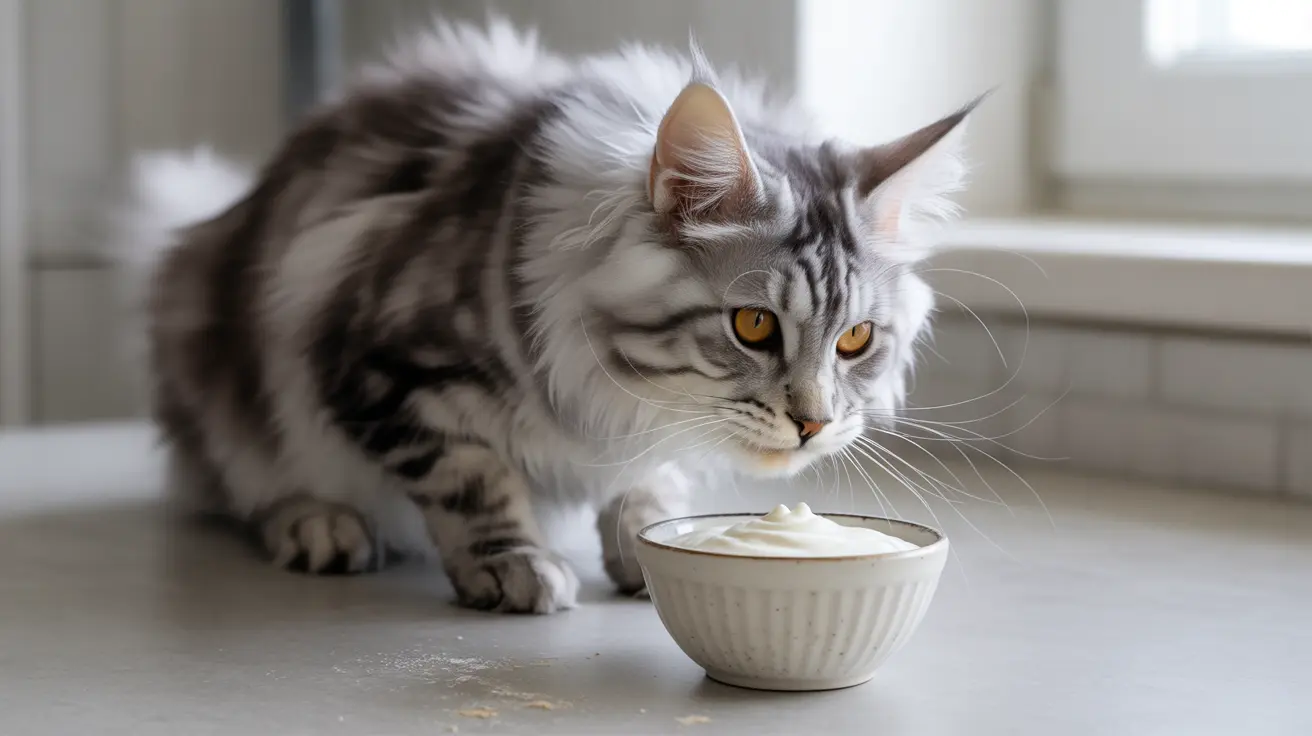Many cat owners wonder about sharing human foods with their feline friends, and yogurt often comes up as a potential treat. While cats may show interest in this dairy product, understanding whether cats can have yogurt – and under what circumstances – is crucial for their health and safety.
In this comprehensive guide, we'll explore the facts about cats and yogurt consumption, including potential benefits, risks, and important safety guidelines that every pet parent should know.
Understanding Cats and Dairy Tolerance
Most adult cats are lactose intolerant, which means they lack the enzyme lactase needed to properly digest dairy products. While kittens can digest their mother's milk, they gradually lose this ability after weaning, making yogurt and other dairy products potentially problematic for their digestive systems.
The Truth About Yogurt and Cats
While plain, unflavored yogurt contains less lactose than milk and may be easier for some cats to digest, it's not a necessary part of their diet. Some cats might tolerate small amounts of yogurt due to the presence of beneficial bacteria that help break down lactose, but this varies significantly between individuals.
Potential Benefits of Yogurt for Cats
When tolerated, yogurt can offer some benefits:
- Probiotics for gut health
- Protein and calcium content
- B vitamins and minerals
- Potential aid in digestion
Risks and Concerns
Several important risks come with feeding yogurt to cats:
- Digestive upset due to lactose intolerance
- Excess calories leading to weight gain
- Potential allergic reactions
- Dangers from artificial sweeteners and additives
Safe Feeding Guidelines
If you decide to offer yogurt to your cat, follow these essential guidelines:
- Choose plain, unsweetened Greek yogurt
- Start with a tiny amount (1/4 teaspoon)
- Monitor for any adverse reactions
- Never exceed 1/2 teaspoon per week
- Avoid flavored or sweetened varieties
When to Avoid Yogurt
Some cats should never be given yogurt, including:
- Those with known dairy sensitivities
- Cats with digestive issues
- Overweight cats
- Cats with diabetes
- Those on special diets
Better Alternatives to Yogurt
Instead of yogurt, consider these safer options:
- Commercial cat probiotics
- Veterinary-approved treats
- Species-appropriate snacks
- Freeze-dried meat treats
Frequently Asked Questions
Can cats eat plain yogurt safely, and how much is okay to give them?
Cats can eat small amounts of plain, unsweetened yogurt if they show no lactose intolerance. Start with 1/4 teaspoon and never exceed 1/2 teaspoon per week. Always monitor for adverse reactions.
Why are many adult cats lactose intolerant even though they seem to enjoy yogurt?
Adult cats lose the enzyme lactase after weaning, which is necessary for digesting lactose in dairy products. While they may be attracted to yogurt's taste or texture, this doesn't mean they can properly digest it.
What are the risks of feeding flavored or sweetened yogurt to cats?
Flavored or sweetened yogurt can contain harmful ingredients like xylitol, artificial sweeteners, or added sugars. These can cause serious health issues ranging from digestive problems to toxicity.
Are there any probiotic or digestive health benefits for cats from eating yogurt?
While yogurt contains probiotics that could potentially benefit gut health, specially formulated feline probiotics are a safer and more effective option for digestive support.
What signs indicate my cat is having an adverse reaction to yogurt?
Watch for signs including vomiting, diarrhea, bloating, gas, lethargy, or loss of appetite. If you notice any of these symptoms after feeding yogurt, discontinue use and consult your veterinarian.
Conclusion
While some cats may tolerate small amounts of plain yogurt, it's not a necessary addition to their diet and carries potential risks. If you're considering adding yogurt to your cat's diet, always consult with your veterinarian first and consider safer alternatives specifically formulated for felines.






